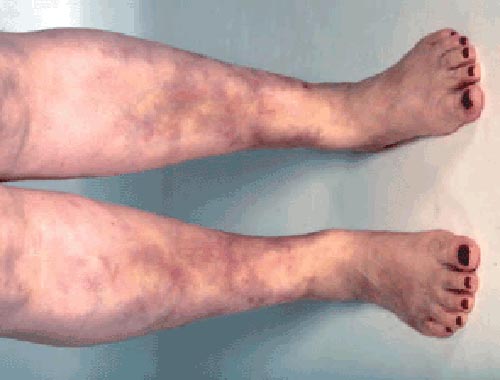Polyarteritis nodosa
Polyarteritis nodosa is a serious blood vessel disease in which small and medium-sized arteries become swollen and damaged. Polyarteritis nodosa is a disease that affects arteries, the blood vessels that carry oxygen-rich blood to organs and tissues. The cause is unknown, but it occurs when certain immune cells attack the affected arteries. More adults than children get this disease. The tissues that are fed by the affected arteries do not get the oxygen and nourishment they need, and become damaged. People with active hepatitis B and C may develop this disease. Symptoms are caused by damage to affected organs, often the skin, heart, kidneys, and nervous system: Abdominal pain; Decreased appetite; Fatigue; Fever; Joint aches; Muscle aches; Unintentional weight loss; Weakness; If nerves are affected, you may have numbness, pain, burning, and weakness. Damage to the nervous system may cause strokes or seizures.
